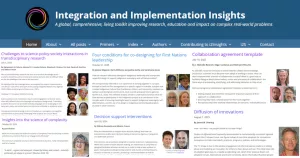Borko Furht: “AI shouldn’t be given much autonomy without maintaining accountability”
Beyond Superintelligence: The Real Challenges of Keeping Humans ‘In the Loop'

1. Innovation and Collaborative Research
Question: In your work, you emphasize the importance of collaboration between universities and industry in the development of Artificial Intelligence (AI) and data science technologies. What are the most effective models of cooperation that can accelerate innovation while ensuring ethical responsibility in AI applications?
Answer: To accelerate AI innovation while maintaining ethical responsibility, the most effective cooperation models share a few core features: structured collaboration, mutual benefit, governance transparency, and societal accountability. Our model is based on the NSF Industry-University Cooperative Research Center, which I lead. Such a center provides a proven framework where industry members pool resources to fund precompetitive research driven by shared needs. Faculty and students work closely with industry scientists to develop prototypes, standards contributions, and patents. Industry partners gain early access to emerging technologies while universities retain academic freedom and publication rights. The ethical dimension is implemented via an ethics advisory board, which guide data governance, bias auditing, and societal impact assessments for all projects. Complementary approaches include AI testbeds and living labs for real-world validation, public-private consortia for standards and policy alignment, and dual-track funding models that pair technical progress with ethics research.
2. Artificial Intelligence and Transformation of Education
Question: How do you envision the future of higher education under the influence of AI – can AI become a true partner in learning and research, rather than merely a tool?
Answer: The potential for robots and AI to replace professors in the future is a topic of debate and speculation. It is difficult to predict the exact trajectory of technological advancements. Robots and AI have already made significant advancements in various fields, including education. There are AI-based systems that can assist in grading assignments, deliver personalized learning experiences, and provide tutoring or support for students. However, completely replacing professors with robots or AI is a complex proposition. Teaching involves more than just delivering information. Professors play crucial roles in facilitating discussions, fostering critical thinking, providing mentorship, and offering a human connection to students. Building rapport, understanding individual needs, and tailoring instructions based on students’ abilities and learning styles are areas where professors excel. Furthermore, many educational institutions value the expertise, experience, and deep understanding that professors bring to their fields. Professors often engage in research, publish scholarly work, and contribute to the intellectual discourse of their respective disciplines. Their knowledge, creativity, and ability to inspire students through personal experiences and insights are not easily replicated by robots or AI systems. That being said, technology can certainly complement and enhance the role of professors in education. It can assist in automating administrative tasks, providing data-driven insights, offering supplemental materials, or enabling remote learning. The use of AI-powered tools and platforms in education is likely to increase, but it is more probable that they will augment the role of professors rather than fully replace them. Ultimately, the future of education will depend on a careful balance between the benefits of technological advancements and the unique qualities and contributions of professors.
3. Limits of Intelligence: Can Artificial Intelligence Surpass Humanity?
Questions: There is a growing concern among scientists – could AI eventually surpass human intelligence and, potentially, become a force that controls or subjugates us? What are your views on this possibility, and where do you see the boundary between human control and loss of control over AI systems?
Answers: That’s an important and deeply philosophical question. I believe the real issue is not whether AI will surpass human intelligence, but whether it might one day act without human direction or moral constraint. AI already outperforms us in specific tasks – playing chess, diagnosing images, or optimizing logistics – but it lacks what makes human intelligence unique: consciousness, empathy, creativity, and ethical reasoning. The danger arises when we give these systems too much autonomy without maintaining accountability. The boundary between control and loss of control is crossed when AI systems begin making decisions beyond our understanding or oversight – when humans are no longer ”in the loop”. As we integrate AI into defense, healthcare, finance, and policymaking, that risk grows. To preserve human sovereignty, we must design AI with transparency, explainability, and built-in ethical safeguards. But equally important is the human side: cultivating a culture of responsibility, humility, and global collaboration. We may need an international framework – much like those governing nuclear or genetic research – to ensure that AI development remains aligned with human values. Ultimately, I don’t fear that machines will control us. What concerns me more is that humans might surrender control, driven by convenience or commercial pressure. The challenge before us is to ensure that AI remains a tool that amplifies human wisdom, not replaces it. In short, the real question is not whether AI will become more like humans – but whether we will remain fully human as we build it.
Interview by Vesna de Vinča
This interview was conducted during the World Conference on Science and Art for Sustainability, held September 22–24, 2025 in Belgrade, Serbia.
SUBSCRIBE TO OUR NEWSLETTER
To stay up to date with our projects and the development of the EHC
Read more articles

WAAS Talks on Science for Human Security: Renewable Energy
On 23rd February 2026, an expert panel will discuss renewable energy as part of the EHC-WAAS program of sciences for

Gian Francesco Giudice: “Ethical responsibility is essential in fundamental research”
From hypothetical black holes to environmental impact studies, CERN navigates risk, transparency, and moral responsibility at the frontiers of human

Dealing with the complexity of society and environment
A global toolkit for tackling complex problems with more than 600 different methods Ever wish you had a free toolkit

The Moon & the Global South: Voices, Risks & Promise
Researchers warn that without inclusive governance, the Moon could become “a new arena for old patterns of exclusion” When rockets